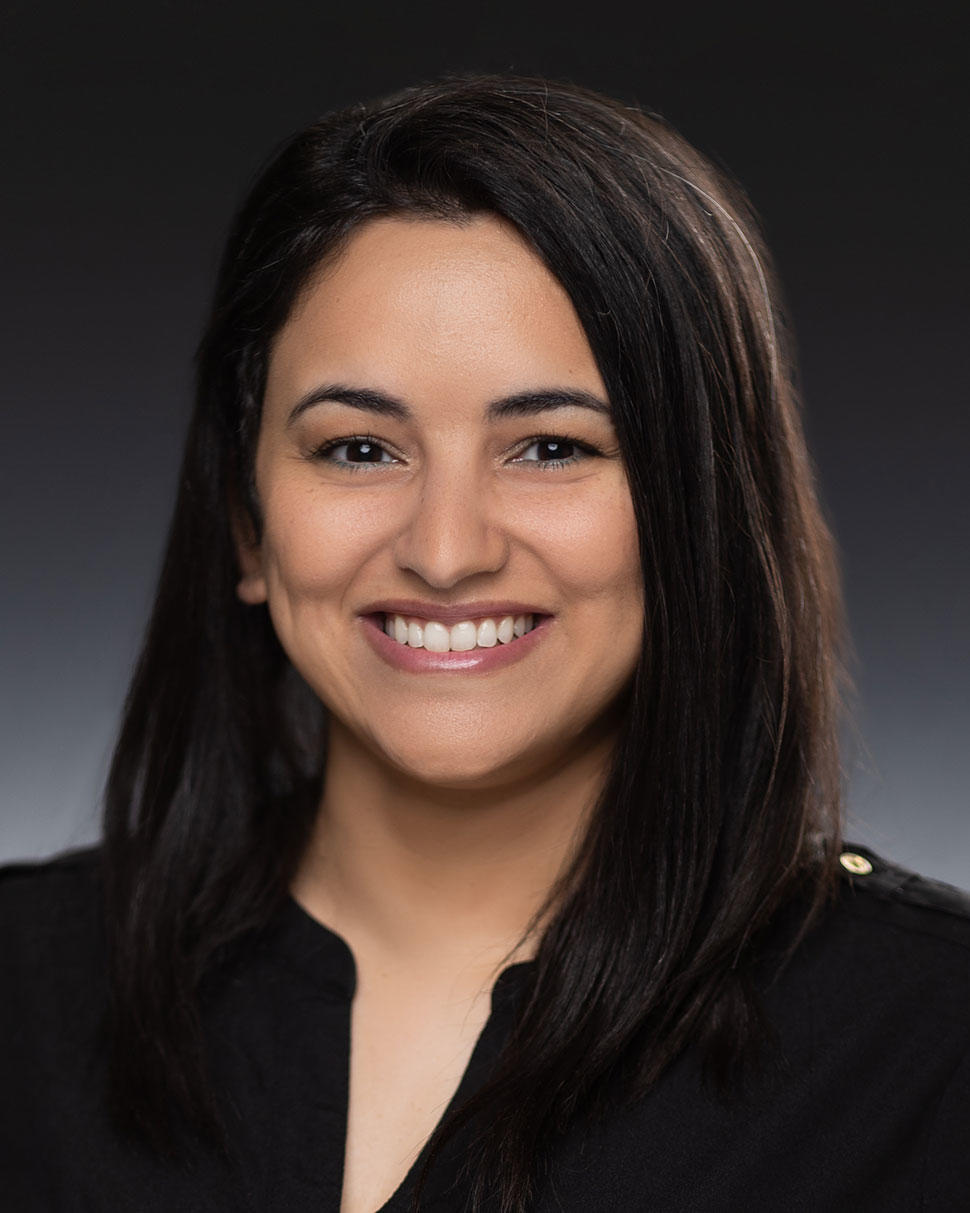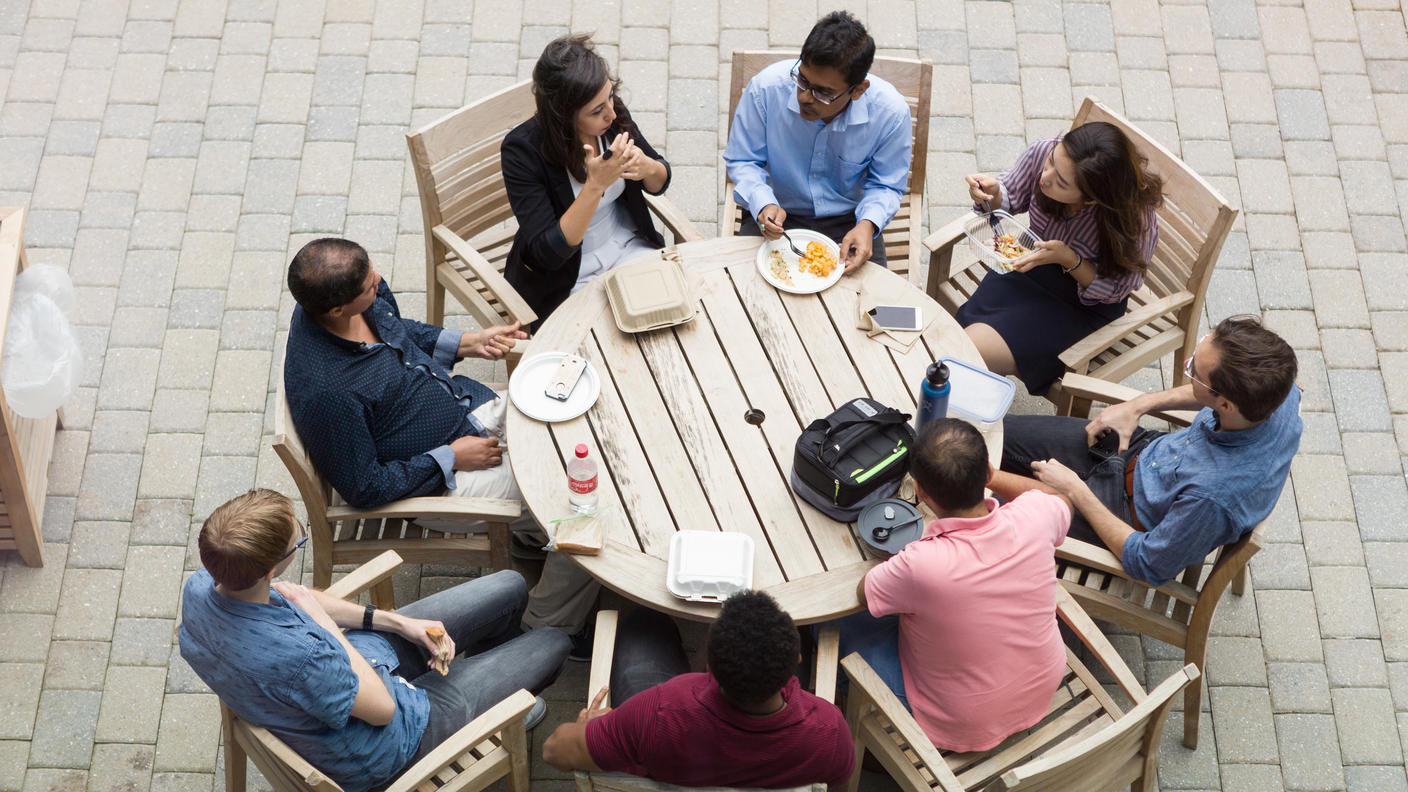Interview conducted by Jossy A. Koshy, postbaccalaureate fellow in the Clinical Genetics Branch.
Years at DCEG: 2016-2022
DCEG Title: Postdoctoral Fellow
Current Organization: Patient-Centered Outcomes Research Institute (PCORI)
Current Title: Program Officer
Who was your mentor at DCEG? What did you work on?
My DCEG mentor was Shahinaz Gadalla, M.D., Ph.D. I worked on epidemiological and molecular analyses to understand cancer predisposition in patients with myotonic dystrophy and explored biological markers of aging, such as epigenetic clocks and telomere length, and their effects on cancer and other patient outcomes. My main focus was myotonic dystrophy.
What do you do in your current position?
As a program officer at a funding institute, aspects of my job include developing funding announcements, reviewing applications to see if they're the right fit for our programs, and overseeing projects once they are awarded, to ensure that they are successfully completed in accordance with guidelines.
How do you think you are applying the skills that you developed at DCEG in your current job? Do you feel like it benefited you in some way, especially in your current role?
Of course, of course. I felt very well trained. I remember feeling that when I was interviewing for my current job. I felt like the caliber of the people at DCEG was amazing, getting to work with them, and having the multifaceted approach to research from a clinical and epidemiological perspective. It was a very multidisciplinary group in DCEG, and I felt like it really broadened my perspective when it comes to research. Also, the weekly DCEG seminars and the exposure to different perspectives from varying research groups and research interests were really helpful because interdisciplinarity is a main feature of my current job.
Can you talk about your experience on DFEL and the kinds of initiatives you have led or supported? How did DFEL impact your time at DCEG and what have you taken forward from it into your career?
DFEL was great because it was a way for fellows from across the division to get together and kind of share experiences, learn together and try to improve the fellowship experience. The collaboration with the Office of Education (OE)—Jackie Lavigne, Ph.D., M.P.H., OE Director, and her team—was really good. DFEL was a platform for us to get together and learn, and really be heard in trying to improve the fellow experience.
Networking with fellows across the division, as well as with OE, was also great. DFEL was a vehicle for many of us to become aware of many opportunities for career building and leadership, so I appreciated that. Through collaborating with the Office of Education, I was able to take part in the Anti-Racism and Inclusivity Working Group, and that was one of the most educational experiences I had during my time in DCEG. I learned so much in that one year. That was one of my favorite things that came out of my work in DFEL and in collaborating with the OE. That experience was great for me and is great for anyone who works as part of a team. It has given me a lot of perspective on the importance and benefits of leveraging peoples’ strengths, being more inclusive, prioritizing team building skills, and just overall bringing a Diversity, Equity, Inclusion, and Accessibility perspective to work and collaboration.
What do you think were the best, and some of the most challenging parts of your fellowship experience?
The best part of the fellowship is the science. The resources, the caliber of the investigators and the people that I got to learn from and work with. The science was my favorite part of all. It's incredible to work with people who are leaders in their field. Seeing how generous they are with their knowledge, learning so much as a budding scientist in that environment is just very, very nice. I think intramural research is kind of like its own entity. I didn't have much to compare it to, but I feel like intramural was really focused on helping fellows build their portfolio and their science, and supporting fellows in getting their feet wet with that. There are so many resources, definitely no lack of data, and I think that was kind of amazing. Also having the Biostatistics Branch is really cool. I thought that collaborating with the biostatisticians was an amazing resource for somebody who's super interested in statistics—I really enjoyed that. The more challenging piece is keeping up with publications and figuring out if that's really what you want to do. Since I had a pretty good experience as a fellow, I was enjoying the environment and the people so much that it took me quite a while to figure out that I did not want to pursue a career as an investigator—so that was one of the most challenging things for me.
Are there any memories from your fellowship that you would like to share?
I made some very good friends while I was a fellow. I have a lot of people with a lot of different expertise to count on. So, it's networking—knowing people with very different expertise and having a large network of people with a variety of scientific and career perspectives, and even from a personal perspective. Making great friends as a fellow is one of the things that I value the most.
What do you like to do in your free time?
Oh goodness! I like to rock climb. Recently I also took up wakeboarding, so I like to boat and just be on the water, anything related to water.
Any advice for current or future DCEG fellows?
Be a sponge. Take advantage of all the resources that being a fellow offers you, whether it's through OITE or the Office of Education. Network, network, network.

